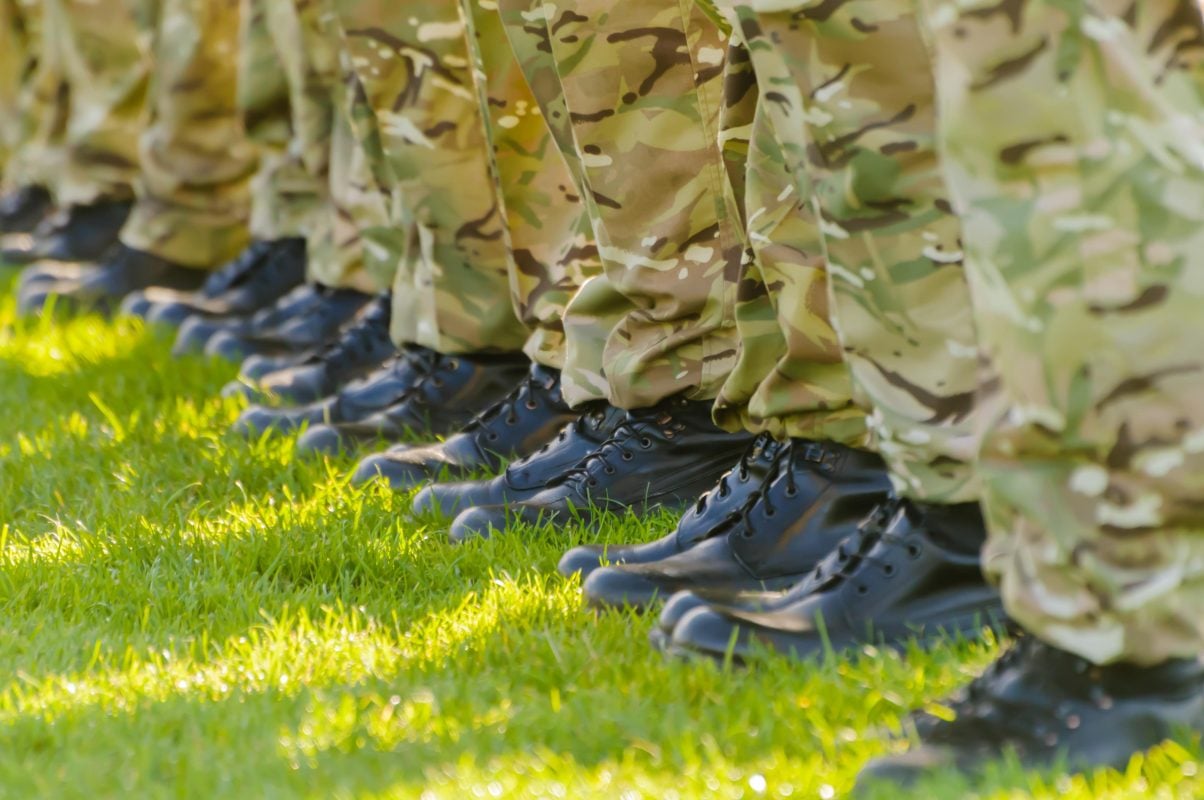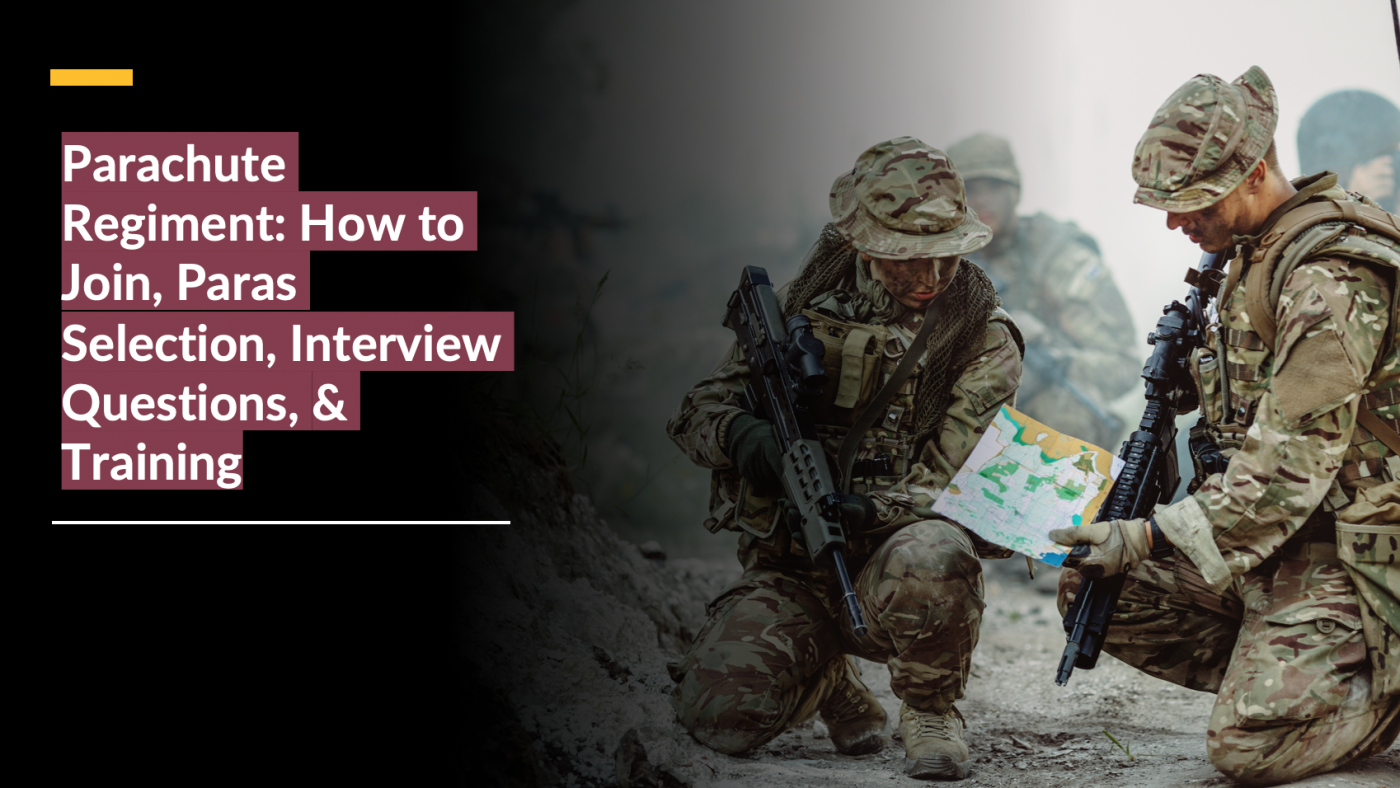In this blog, career recruitment expert Richard McMunn guides you through how to join the Parachute Regiment, including the selection process, Para training, P Company and also tips for passing the British Army interview.
Parachute Regiment Selection Process
The selection process for joining the Paras consists of a series of different steps that assess your eligibility, an Army briefing and then an Army Assessment Centre, consisting of a series of fitness tests, a medical, assessments and interviews.
After you apply to join the Parachute Regiment, you will undergo an Army eligibility assessment. This includes the requirement to answer a series of questions to see if you are eligible to join, and also the need to complete a medical questionnaire. Once you progress past the eligibility section of the Paras selection process, you will then be given an Army Recruiter who will look after whilst you go through the rest of the Parachute Regiment selection process.
The next stage of your road to joining the Parachute Regiment is where you are invited along to an Army Careers Centre – this stage is called an ‘Army Brief’ and it is where you get to find more about joining the Army, and in particular whether or not you have what it takes to join the Parachute Regiment.
At the end of the Army Brief, you will have a good idea what you need to do to prepare for the Army Assessment Centre. This is an initial 2-day assessment where you will get to taste Army life whilst also undergoing a series of tests and assessments; including a medical, an Army test, physical exercises (the bleep test), team exercises, and also a private discussion (interview) to discuss your options for becoming a soldier and Paratrooper in the British Army.
Finally, the Army will then conduct some background checks and also assess your references before giving you a start date for your Paratrooper training.
Parachute Regiment Fitness Test and Entry Requirements
To join the Parachute Regiment, you need to be between the ages of 16 and 35.5 years old. You do not need any formal qualifications to become a Paratrooper; however, you will need exceptional levels of fitness.
The Parachute Regiment fitness test includes:
- Conducting a Mid-Thigh Pull at 76kg;
- Being able to throw a medicine ball to a distance of 3.1m;
- Running 2km in 8 minutes 15seconds or less.

How Long is Parachute Regiment Training?
Parachute Regiment training consists of two different phases. Phase 1 is 30 weeks in total and it takes place at Catterick.
This initial Parachute Regiment training course is called the PARA Combat Infantry Course, and it is extremely tough to get through. You will need to be extremely fit, determined, courageous and resilient.
The PARA Combat Infantry Course is where you will learn all about Basic Army Training, in addition to carrying out high-level Infantry training. During this stage of Parachute Regiment training, you will have to go through ‘P’ Company (P Coy) which is renowned for being one of the toughest training courses in the military.
During P Company, you will learn skills in survival, map reading, navigation, how to fire military weapons (SA80) and also combat techniques. During this initial 30-week Paras training course, you will also qualify for your driving licence (car or HGV, depending on your circumstances).
Once you successfully pass the 30-week initial Parachute Regiment Training Course, you will then move onto a 3-week jumps course, where you will become a fully trained Paratrooper and ready to wear the coveted Paratrooper burgundy beret and Wings with pride!
Is P Company Hard?
Yes, it is extremely challenging, both mentally and physically. To become a qualified Paratrooper you have to be able to demonstrate you have the determination, resilience, confidence and courage to meet the demands of the role.
During P Company training, you will have to undergo a series of challenging physical tests, including a 10 mile run and march as part of a squad over difficult and challenging terrain, a Trainasium, a Log race where you are up against other potential Paratroopers, a 2-mile March, a Steeplechase, Milling, a 20 Mile Endurance March and a Stretcher Race.
How Much do the Parachute Regiment Get Paid?
During your training, you will earn £15,671 which will then rise, once Initial Parachute Regiment Training is complete, to £20,000 per year.

What Does it Take to Become a Paratrooper?
To become a solider in the Parachute regiment takes a number of core SKILLS. These include:
- Professionalism;
- Resilience;
- Bravery and courage;
- Self-reliant;
- Agile and lightly-equipped;
- Exceptional physical fitness levels;
- Physical and mental robustness;
- Problem solving skills;
- Teamworking capabilities;
- Outstanding map reading and navigational skills;
- Versatility in military and Army operations;
- Honest, loyal and committed.
Parachute Regiment Interview Questions
During the Paras selection process, you will have to undertake a interview. We advise you prepare for the following interview questions during your preparation:
- Why do you want to join the Parachute Regiment?
- What are your motivations for joining the Army?
- Tell me what you know about the Parachute Regiment?
- Describe the training will you undergo when you join the Parachute Regiment and which parts you will find toughest?
- What are the core SKILLS of a Paratrooper?
- What are the ‘values’ of the British Army?
- What do you get up to in your spare time?
- What do your parents and partner think of you wanting to join the Parachute Regiment?
- What do you know about the history of the Parachute Regiment?
- What have you been doing to prepare for Paras selection?



I always am eager to learn the skills and join the commandos around the world to help other who really need help and bring stability to those who need peace
Good job people
What kind of training do officers go through to become a paratrooper
Hi Jan, the training is covered in this blog 🙂 if you have any specific questions about the process please let me know.
One needs superior levels of physical fitness, strength, prowess, toughness, natural leadership and obviously the best looking and smartest Man in the room..
I want to join the British army parachute
Hi Vincent, we have an excellent guide on joining the UK parachute regiment. Learn more here.
I’m doing a level 2 public services course that should help me get a better understanding of the p company fortunately my tutor is an ex paratrooper! I’ve been training at home religiously and I’ve seen a great change in myself. It helps that I also work in a high stress environment where you have to be aware and in the ball for your entire shift, other wise you’re a liability. I love my job it’s made me so much more confident and aware. I want to join the paras cos I’m an adrenaline junkie and my grandfather used to be a paratrooper who then went onto become a colour/staff sergeant in the transport core. The army sounds like an amazing experience that the average civilian wouldn’t have, I’ve heard it makes unbreakable bonds, and has amazing routine in which makes me very happy!